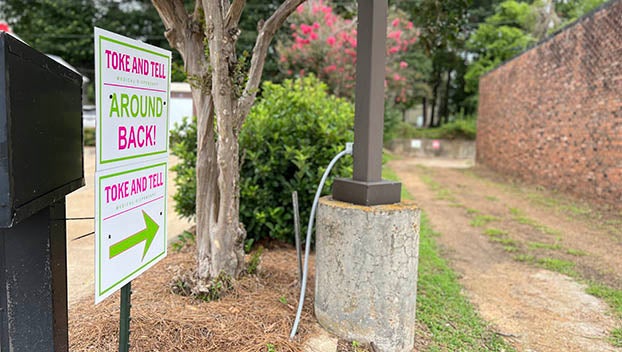Second try a charm for Vidalia? Officials resubmit bond application
Published 12:04 am Tuesday, July 28, 2015
VIDALIA — When the new bond application for the Square on Carter project was submitted to the bond commission last week, an attorney general’s opinion officials said they hope will demonstrate the project’s legality was included.
The opinion was issued to a municipality other than the City of Vidalia, but speaks to the project at hand, they said.
The opinion, issued to Monroe Mayor Jamie Mayo, addresses whether the I-20 Economic Development District can enter into an agreement with Delta Community College to provide funds for the construction of an economic incubator project within the I-20 district’s boundaries.
The Square on Carter proposal is part of a wider master plan for the city and calls for the purchase of adjacent parcels of property near Walmart on U.S. 84.
The parcels — 31.67 acres owned by Scroggins Investment Co. and 32.72 acres owned by BCHT, LLC. — would then have public infrastructure such as streets and utilities installed in an effort to lure residential, commercial and business interests to the pre-developed site.
The City of Vidalia initially applied for two bonds in connection with the project — one for the purchase of the property and one for the installation of infrastructure — but those applications were delayed several times and ultimately shelved by the bond commission after a legal memo from the attorney general’s office advised the project might not meet constitutional guidelines for the purchase of property by a city.
The memo was initially confidential because the attorney general’s office was acting as the bond commission’s legal counsel, but became subject to public document laws after it was distributed at a bond commission meeting in June. It was released following a public records request.
Since then, the city has restructured its request by applying not as the city but as Carter Street No. 1 Development District.
The Vidalia Board of Aldermen created the district last August, naming the members of the board of aldermen as the governing directors for the Carter Street No. 1 district, which exists to levy special sales, hotel occupancy and ad valorem taxes to support the construction of infrastructure within its boundaries.
The Square on Carter project falls within the Carter Street No. 1 boundaries. As part of an agreement the city entered with the district, any shortfall in revenues the district experiences while paying for bonds will be provided by the city.
The I-20 opinion notes that Louisiana law allows political subdivisions — such as cities and development districts — to issue revenue bonds to pay for economic development projects.
It also notes that economic development can be defined by law as “any and all projects suitable to any industry determined by the local governmental subdivision or, as appropriate, the issuers of revenue bonds, to create economic development.”
Projects can include, the opinion notes, industry, housing and related industries, hotel and motel development, commercial and retail development, amusement, hospital and medical and transportation-related industries.
The law cited also says economic development can include “any other industry determined by the local governmental subdivision or issuer of revenue bonds, as appropriate, whose assistance will result in economic development.”
A footnote in the opinion states that to meet lawful requirements a project must have “a reasonable expectation of receiving at least equivalent value in exchange for the expenditure or transfer of public funds.”
Concordia Economic Development Director Heather Malone said the opinion was included in the application packet because, “it pretty much outlined, item for item, the same components that we have proposed for the Square on Carter project.”
“It was nice to see this was going on and was being successful in other areas of the state,” she said.
One change in the Carter Street application from the previous Vidalia application is that the district is seeking a single bond instead of two separate bonds. Malone said the application was structured that way in order to allow more flexibility for the district.





